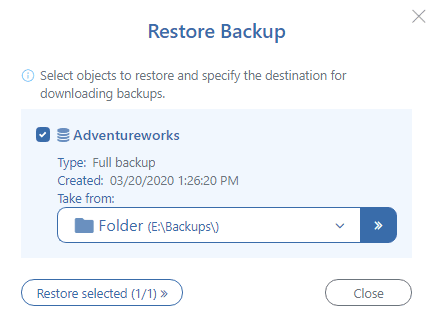![]() Doing backups might become a repetitive and reflex action if done for quite a long time. But due to this, you might skip a few things at the beginning and never add them to your checklist schedule when doing backups.
Doing backups might become a repetitive and reflex action if done for quite a long time. But due to this, you might skip a few things at the beginning and never add them to your checklist schedule when doing backups.
The following article presents a list of databases to backup and reasons why you should do it.



 We already know that backups are important for securing your databases from data loss.
We already know that backups are important for securing your databases from data loss.

 Imagine how cool would it be: you are on vacation on a beach when you receive a panicked email from your client telling you he has lost all his data. You take your smartphone, log in to
Imagine how cool would it be: you are on vacation on a beach when you receive a panicked email from your client telling you he has lost all his data. You take your smartphone, log in to